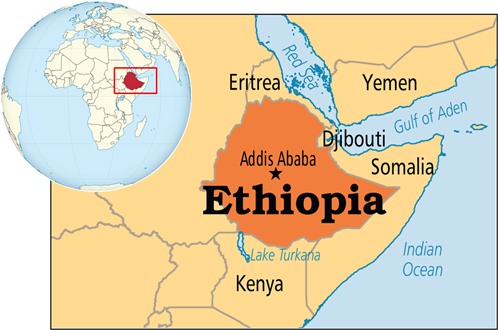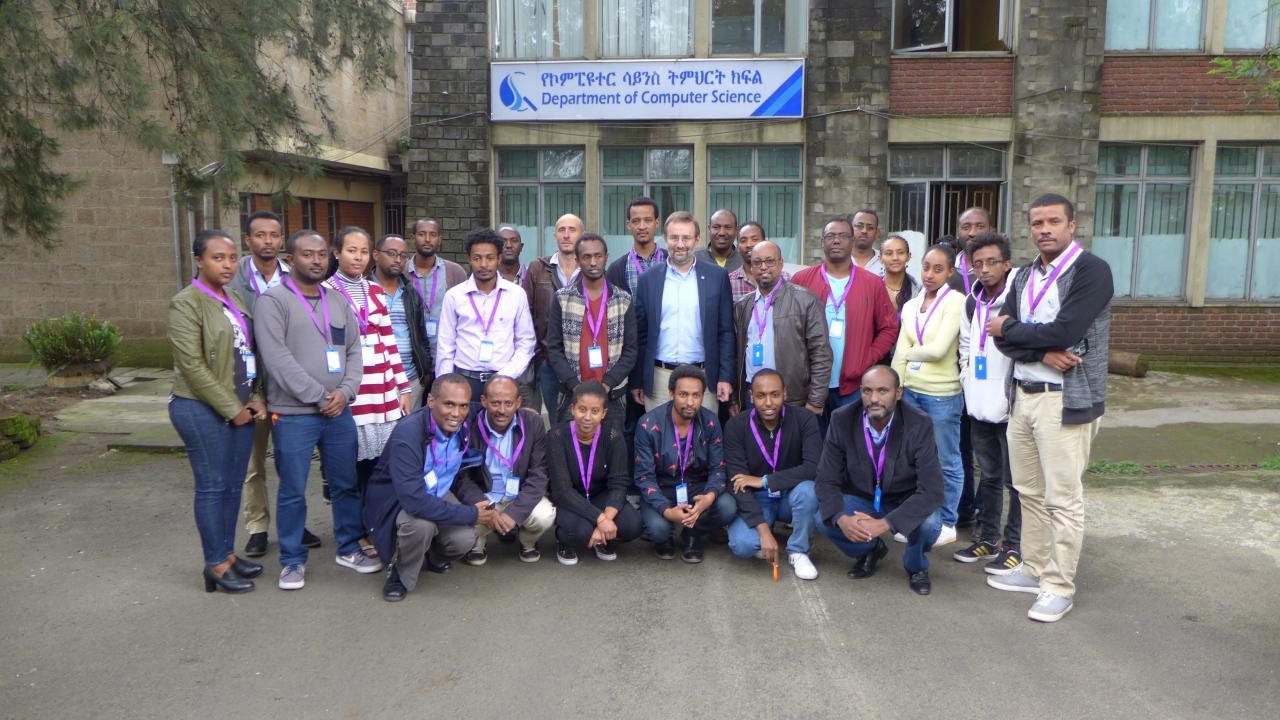
In this new web feature, ICTP highlights outreach activities by its scientists, who frequently travel throughout the developing world to share their scientific expertise. The “ICTP effect” is spread further through the Centre’s active program of training and education in support of sustainable science; more details about ICTP’s scientific outreach activities can be found here.
|
ICTP scientist: Marco Zennaro, research officer Research section: Telecommunications/ICT for Development Laboratory Area of expertise: Internet of Things (IoT) Recently seen in: Addis Ababa, Ethiopia Purpose: to teach and train IoT concepts to a group of students and faculty members coming from various Ethiopian Universities |
|
|
What was the main topic of the Ethiopian workshop? The workshop, which took place in Addis Ababa (Ethiopia) from 22-29 September, was the first practical workshop on the Internet of Things (IoT) ever realized in the country. IoT refers to the networked interconnection of objects in addition to traditional networked devices. This new technology has the potential to truly change the world, just as the Internet did. The number of mobile objects composing the IoT will significantly grow in the near future: in 2020, between 12 and 50 billion devices are expected to be connected with each other. This hands-on training course aimed to increase the awareness and interest of IoT amongst universities in Ethiopia and, in the long run, to enhance the understanding and involvement of Africans in IoT standardization. We got around 30 participants, including students and faculty members coming from various Ethiopian universities. |
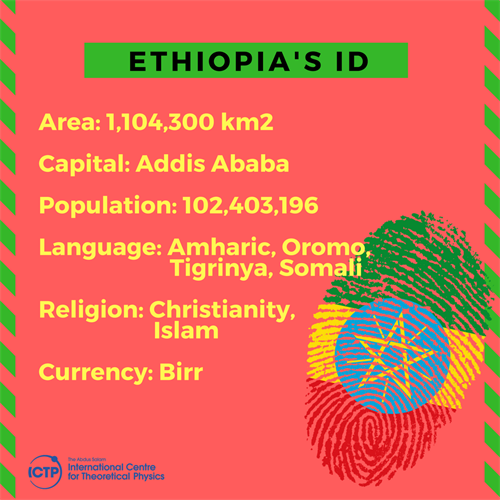 |
|
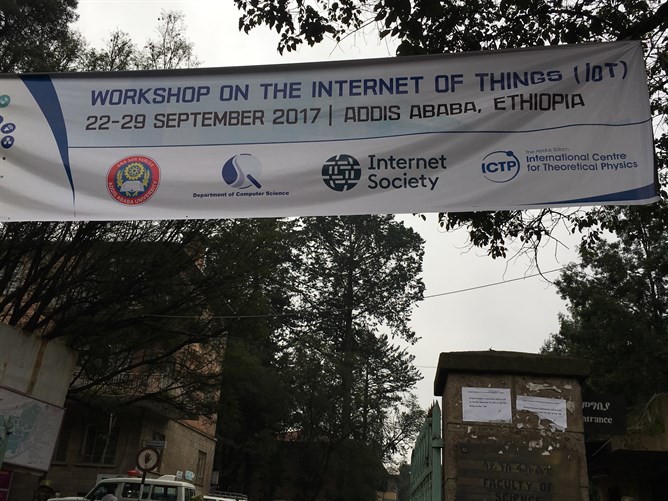 |
| Credits: Marco Zennaro |
What impressed you the most about this country?
Ethiopia is a very special country indeed. It is very different from other African countries I have been to: surrounded by mountains, it kept and protected its unique culture over time. People speak Amharic, not English or French, and their cuisine is also truly special.
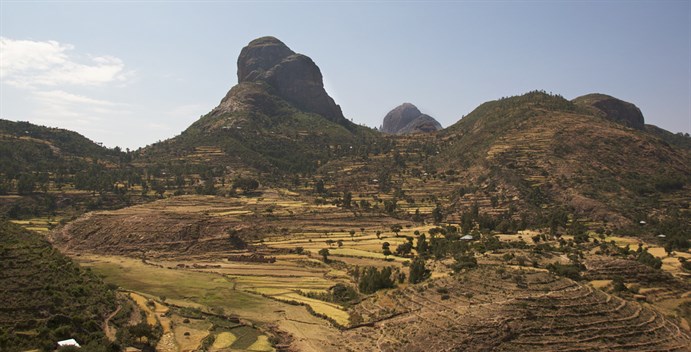 |
| Credits: Alan (Flickr) |
Have you done similar activities in Ethiopia in the past?
This has been the first event we realized in the country. We were invited by the Internet Society, which organized the workshop and with whom we have a longstanding collaboration.
Together with them, we realized many activities in Africa in the past, especially in the field of wireless and connectivity: we held a course in Kenya in June on community networks, for example, which resulted in the installation of a wireless connection network in Kibera.
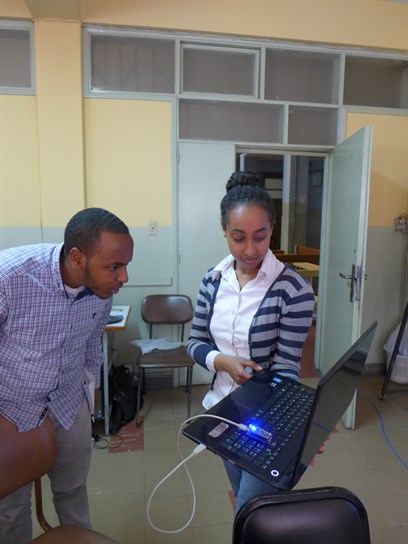 |
|
| Credits: Marco Zennaro |
Now we started collaborating in the field of IoT, which is one of the main reasons for this workshop in Ethiopia to take place. In this respect, Dawit Bekele, the Internet Society Regional Bureau Director for Africa, recently wrote: “Today, we are at the beginning of a new revolution, that of the Internet of Things (IoT), the extent of which might only be limited by our imagination. IoT might bring new opportunities to Africa in general and the developing world to solve its many problems but also to develop new applications that might contribute to the world at large. It is with this vision that the Internet Society, Addis Ababa University, and International Centre for Theoretical Physics organized this 5-day pilot workshop in Addis Ababa, in order to create the understanding and interest of IoT in Ethiopia. If successful, similar workshops will be organized in other parts of Africa.”
How did you manage to balance theory and practical activities during the workshop?
The combination of “learning-by-doing” and problem-based learning is an extremely potent method. Participants go through a first intense learning phase, followed by a more practical section where they need to come up with their own ideas for applications. They thought of traffic monitoring, which is a serious issue in Addis Ababa. They also envisaged creating a system to monitor the temperature of refrigerators in hospitals.
We used to suggest potential applications to the attendees in the past. Over time, though, we have realized that a much better strategy is to give them tools and let them figure out the best applications from what they have learned, as each country clearly has its own specific needs. We have now been involved in more than 30 IoT workshops all over the world and every time applications were different. In Malawi, for example, we would have never thought they were willing to adopt IoT to monitor water levels in water drums, for which new companies have now been created. In Benin they were interested in checking air quality; in Thailand, they applied IoT for fish farming, and in Rwanda to monitor humidity levels of plucked tea leaves.
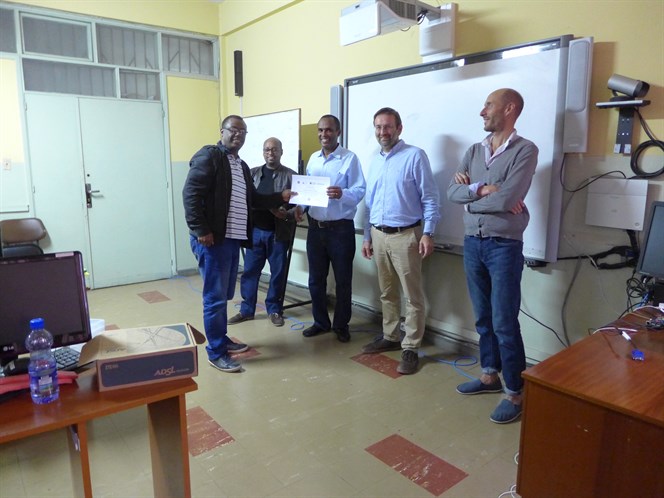 |
| Credits: Marco Zennaro |
What theoretical tools did you aim to provide with this course?
In the past, we were mainly focused on the theory of IoT. But we were missing a crucial part, data analysis. For this reason, this time we have asked Franck Albinet, a freelance Geographical Information System and Data analyst, to assist us in teaching participants how to code. During his training sessions, participants learned how to use Python code for both programming nodes and for data analysis.
What do you enjoy the most during this kind of activity?
I really like the fact that participants always come up with ideas I would have never thought about. It is also nice to see students and professors learning together. Some of them belong to the very same department but have never worked together before. It’s good to foster new collaborations.
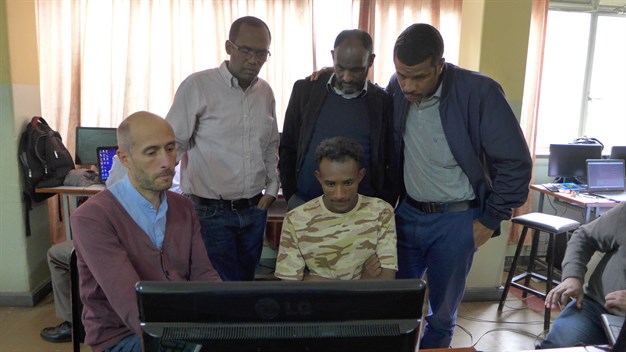 |
| Credits: Marco Zennaro |
What was most challenging for you?
To work in IoT involves several competencies: you need telecommunication skills, basic concepts of programming and data analysis, but also technical knowledge in a specific field where your product could be applied, as IoT always needs a practical application. Many aspects need to work together. In this respect, it’s not that easy to get participants equally trained in all these sectors. In this last workshop, for example, almost all attendees had a background in computer science. They were very good in programming, some of them could write code faster than anyone I have met before, but they didn’t know the basic operating principles of an antenna. For this, we had to adapt our training on-site.
What are the next steps?
We will keep in close touch with them and follow their progress. The Internet Society Regional Bureau for Africa is now pushing a lot on IoT, and they have already created a mailing list where we can discuss various ideas. In this frame, we would be delighted to organize more workshops in Ethiopia in the future.
Hopefully, these efforts will result in some great outcomes for Ethiopia, similarly to what happened in Rwanda. The University of Rwanda, where we held a workshop in 2015, has been awarded a multi-million euro grant by the World Bank to develop a regional center of excellence for IoT and, in 2016, they launched the World Bank-funded African Centers of Excellence, of which ICTP is a main partner.
---- Anna Lombardi

















